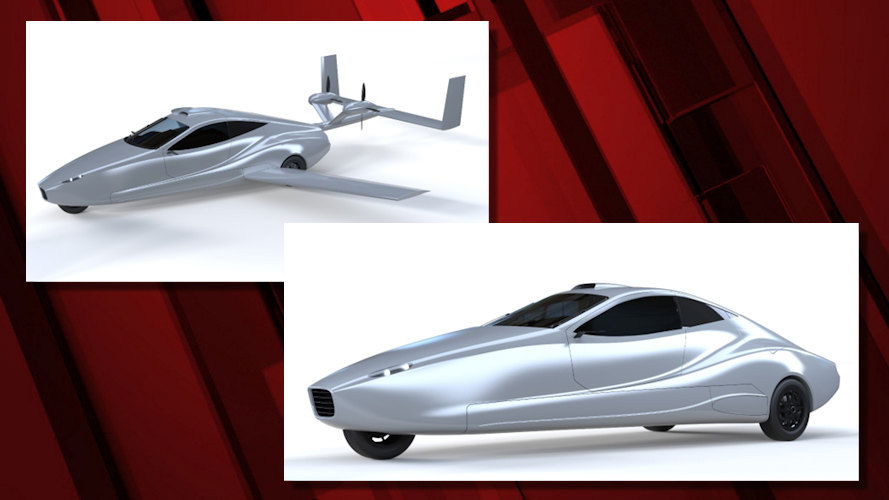Remember Prineville’s flying car? Here’s Samson Sky’s enhanced design it says will be simpler, easier to build

PRINEVILLE, Ore. (KTVZ) -- Nearly a year after announcing the First Flight of the Switchblade Flying Car, Prineville's Samson Sky said Monday it's moved right into the next phase – Production Engineering. The company announced that their efforts have yielded tremendous results, and they are now sharing their enhanced body design for what will be their production vehicles.
“The new design improves performance and shortens the pathway to production by transferring much of what worked well in the test vehicle that flew, into the new streamlined design,” stated Sam Bousfield, Samson Sky CEO and designer of the Switchblade, citing in a news release that the new design is simpler and much easier to build.
Here's the rest of the announcement:
“Everything we do is with the mindset of how we are going to produce thousands of Switchblades, to meet the incredible demand we have,” added Bousfield. Samson officials stated that the company’s existing reservations represent a potential sales value of over $450 million. They have Reservation Holders from 57 countries, including all 50 U.S. states.
The company also reported that they validated many key parameters during flight testing and the new design elevates the Switchblade to the next level.
“Many people don’t know that a company developing a brand new aircraft never goes into production with their initial design,” stated Bousfield. “There are always changes and modifications based on things learned from flight testing, and we’ve used these to improve even more on our original design, while keeping our signature swinging wings that tuck away completely inside the vehicle when driving.”
The website describes the Switchblade as a high-performance vehicle, both on the road and in the air. The test vehicle that flew in 2023 achieved their target of 125 mph in ground testing, and company officials stated they made these design changes to achieve their flying cruise speed target.
According to Bousfield, wind tunnel testing in May validated that the new design with the sleeker body and thruster propellers will allow Samson to meet their target of a 160-mph flying cruise speed. He explained that this gives Samson the green light for production with the enhanced body design.
Wind tunnel testing is standard practice in the aviation industry, and is widely used by Boeing, Airbus, Cessna and many others. The wind tunnel provides real-world data and can get within 3% of ‘actual’ performance.
Samson said it is building three test vehicles over the next 18 months to be used for intensive testing on every aspect of the vehicle, both flying and driving, prior to ramping up production.